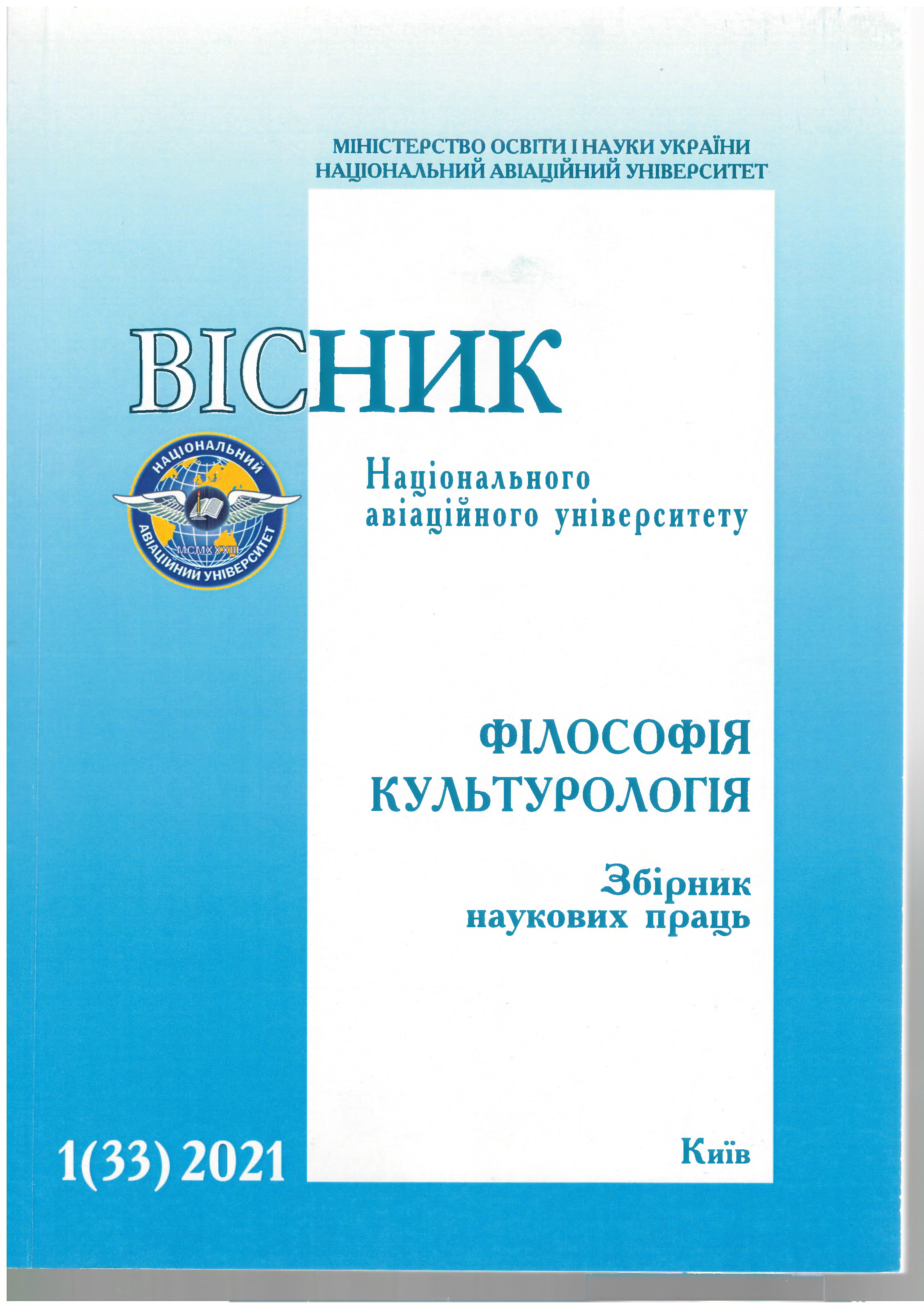CIVIL SOCIETY AS A SUBJECT OF RESEARCH OF REPRESENTATIVES OF KYIV SPIRITUAL-ACADEMIC PHILOSOPHY OF THE XIX CENTURY
DOI:
https://doi.org/10.18372/2412-2157.33.15637Keywords:
civil society, rule of law, personal freedom, ideal of society, cultural values, idea of law, selfishness, idea of justice, social progressAbstract
Introduction. In the spiritual culture of Ukraine in the XIX century, a prominent place was occupied by the spiritual-academic
philosophy, mainly represented by teachers of theological academies. The period in the development of philosophical thought in Ukraine mentioned above is still the least studied because for a long time all the spiritual achievements of the Ukrainian people were considered to be either progressive or reactionary to Marxism, and spiritual-academic philosophy of the ХІХ c. did not fit the coordinate system of the official ideology. The aim and tasks. The aim is to reconstruct theoretically the speculative search for the foundations of civil society by representatives of the Kyiv spiritual-academic philosophy of the XIX century, in particular, by P. Linytsky (1839-1906). This aim is realized in the following tasks: to analyze the works of the representatives of Kyiv spiritual-academic philosophy of the XIX c., P. Linytsky’s, inclusively, devoted to socio-philosophical issues; to identify the socio-historical background the philosophical views of Kyiv thinkers were formed against of; to highlight further prospects for the transformation of social relations in modern Ukraine and compare them with the theoretical positions of Kyiv thinkers, which remain relevant today as well. Research methods are hermeneutic method – for interpretation and explication of authentic methods of historiographical analysis; systemic method – for systematization of primary sources and scientific literature, devoted to studying the civil society, state, place of man in them; comparative-historical method – for identification the socio-historical conditions under which the philosophical views of Kyiv thinkers were formed, of P. Linytsky in particular; comparative analysis – for contrast the worldview and philosophical pReferences of Kyiv representatives of spiritualacademic philosophy and P. Linytsky; method of textual analysis – for study of the context of the philosophical heritage of KTA professors. No less fruitful the method of categorical-conceptual analysis was, which made it possible to specify and clarify the conceptual apparatus used in the works of representatives of spiritual and academic philosophy of the ХІХ century. Along with the mentioned above, such general scientific methods as comparison, analysis, and synthesis, induction and deduction, abstraction and concretization, etc., have played an important role. Research results. The originality of the worldview of the spiritual and academic philosophy's representatives of the XIX century is determined by its genetic connection with the national cultural tradition, in which the focus on the individual "I" has always prevailed over the collective "We". The ideal of society, they believed, has the least right to worship, and in general, society and public life exist to please the individual and not vice versa. Ukrainian philosophical thought in the person of P. Linytsky was not only a classical representative of spiritual and academic philosophy but also an outstanding socio-political thinker who aspired to the formulation and theoretical and philosophical understanding of current issues of public life. Conclusion. The ideal for representatives of the Kyiv spiritual- academic philosophy, in particular for P. Linytsky, was the order and harmony of public life based on the principle of justice, recognition of the dignity of man, and the right to self-affirmation.
References
Mozghova N. Philosophical theism of Peter Linitsky //
Humanitarian paradigm / Гуманітарна парадигма. Науковий
журнал. – 1(2) 2019. – С. 93 - 98.
Линицкий П. И Критическое обозрение обычных
взглядов и суждений о различных видах общественной дея-
тельности и началах общественного благоустройства // Вера и разум.
– Харьков, 1884. – Т.2. – Ч.1. – С. 26-68; 146-162;
-233; 255-277; 287-305; 345-368.
Линицкий П. И. Два конца. (Конец ХVІІІ и конец ХІХ ве-
ков). По поводу книги проф. А.Н.Гилярова «Предсмертные
мысли ХІХ века во Франции». – К., 1901 // Труды КДА. – 1901.
– Т.2. – С. 151-178.
Линицкий П. И. Закон эволюции, как принцип реалис-
тической философии нашего времени // Труды КДА. – 1902. –
Т.4. – Кн. № 11. – С. 381-414.
Линицкий П. И. Начала общественной жизни // Труды
КДА. – 1906. – Т.2. – С. 28-39.
Линицкий П. И. Славянофильство и либерализм.
Опыт систематического обозрения того и другого. – К.: Кор-
чак-Новицкий, 1882. – 255 с.
Слюсарчук Р. О. Погляди П. Ліницького на суспільство
і державу та їх розвиток. – К.: Знання, 1999. – 36 с.
Слюсарчук Р. О. Соціальні складники філософії П. Ліниць-
кого та методологічні засади їх розвитку. – К.: Знання, 1998. – 20 с.

